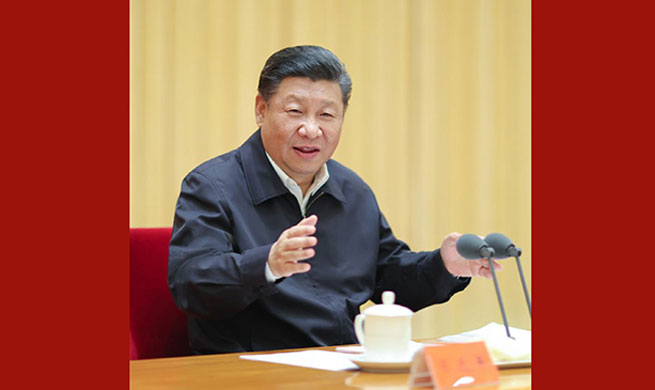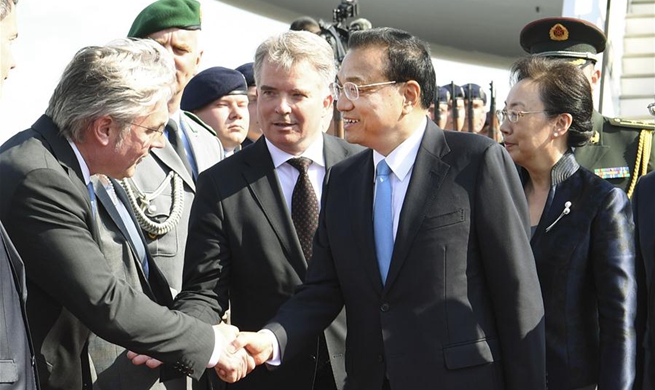BEIJING, July 8 (Xinhua) -- To cure the fear of so-called "economic aggression" of China and make rational decisions, U.S. policy makers should avoid being misled by distorted reports that demonize China's intellectual property rights (IPR) protection.
One such report, closely related to the ongoing trade war launched by the United States against China, was released by the White House Office of Trade and Manufacturing Policy on June 19.
Using bigotry and unfair accusations, the report attempts to depict China as "a global threat." It actually does not hold water. If anything, the report proves how the United States has turned a blind eye to China's progress in IPR protection, and how irresponsibly the United States exaggerates the issue.
The report labels China's "market access approval" and "government supervision" as "forced technological transfers" to justify its implausible conclusions. This is a glaring flaw.
China has never forced a foreign company to transfer technologies, nor does any Chinese law give nod to "forced" transfers. Necessary limitations on foreign ownership and approvals are by no means "invasive." The Chinese government is exercising its duties just like any other government.
China is committed to the principle of mutual-benefit and win-win in economic exchanges with foreign companies. Over the past four decades, the benefits of the country's rapid development have been widely shared under the spirit of contract.
If the Chinese market is not based on rule of law, why has it become a popular destination for overseas investment? How could so many multinationals make China an essential part of their global industrial chains?
China has become a major powerhouse of the world economy. And such achievements have been made by hard-working Chinese.
Facts always speak louder than words. According to a business climate survey by the American Chamber of Commerce in China, almost all member enterprises agree that IPR enforcement in China has been stable or improving in recent years, and 74 percent of respondents plan to increase investment in China this year.
Sadly, the Trump administration is intent on ratcheting up its criticism of China's IPR and technical innovation, while it seeks to put additional tariffs on Chinese imports.
But China will never be forced into submission.
The report is full of cliches reminiscent of a Cold War mindset, and slanders the business integrity of the Chinese; it shows that the United States still has China-bashing fever and is addicted to tampering with standards to serve its own interests.
Fortunately, the international community does not buy it, as baseless accusations and distortion of facts go nowhere, while fair and just competition always prevails.
It will be better late than never for the United States to stop demonizing China's IPR protection and come to terms with reality more responsibly.

















